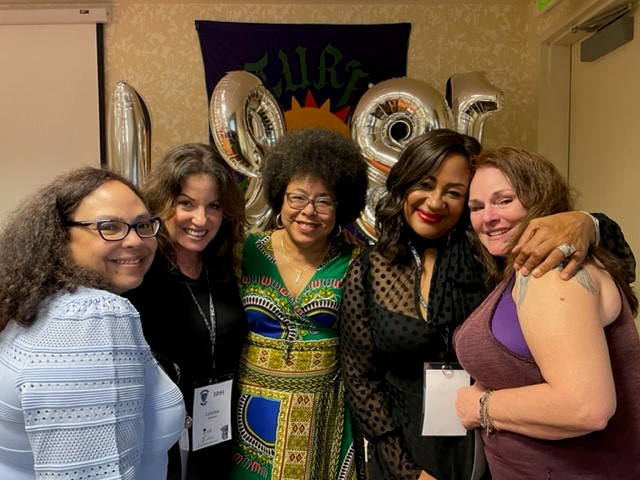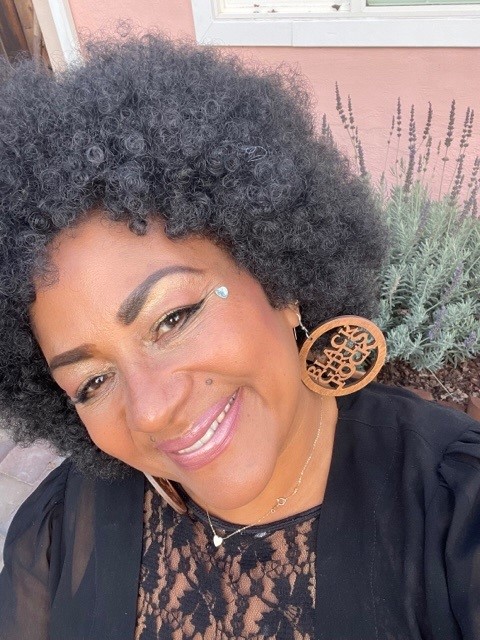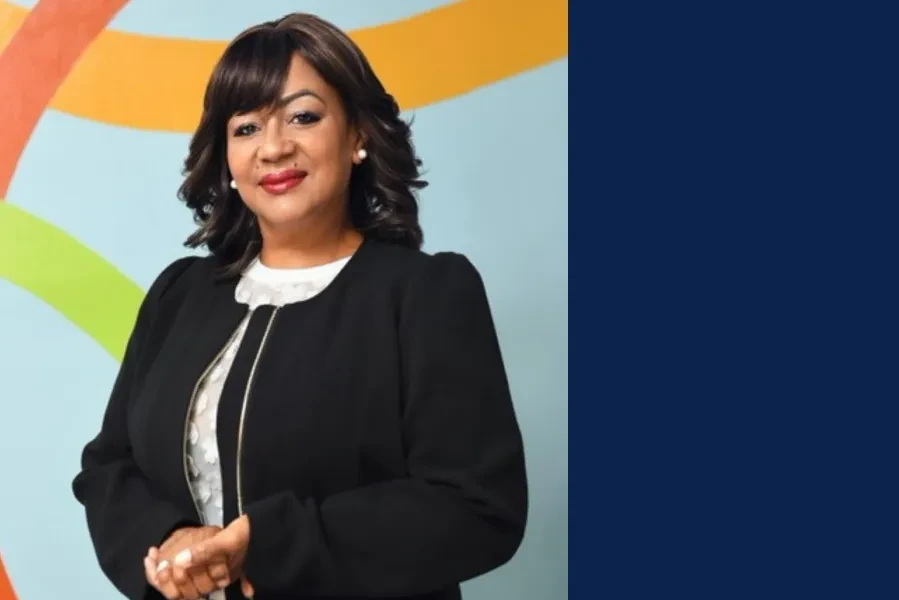George Washington Carver said, “Education is the key to unlock the golden door of freedom.”
For Gina Fromer, a doctoral student in the PhD in Organizational Development and Leadership program at the University of Arizona Global Campus (UAGC), this is a reality in her own life. It is the foundation of the work she does every day in her community and in communities across the state of California.
Gina’s connection to community began at a young age. Growing up in the Bay Area of California, the daughter of a teacher and a transportation worker, Gina says her family was poor.
“It was the kind of poverty where you had a village,” she describes. “We were a close-knit community, and we took care of each other.”
Gina says she and her siblings didn’t know what it meant to be poor because when they looked around, everyone was poor, but her parents worked hard to create an environment full of love and joy.
She also loved to learn.
“I loved school!” She exclaims. “I went to Catholic school pretty much all my life, from kindergarten on.” For Gina and her family, education was not only something they enjoyed and valued, but it was also the path to a better life.

Gina maintains close friendships with high school classmates even today.
“Education was a way out of poverty for me,” Gina says. “I remember my mom saying, ‘Get your education, so you can get out.’ I thought she meant the hood, but what she really meant was to change the cycle of poverty for our family.”
Her family needed government assistance to make ends meet when she was younger, but a good education meant the possibility of changing that for future generations.
“The intention of our ancestors was to get an education to change our circumstance,” she says.
Born to Lead
As a teen, Gina counseled her peers as a volunteer for Young Community Developers, an organization whose mission is to provide resources for residents of any age to achieve economic mobility.
“I just happened to get a summer job where I was able to learn and grow at the same time,” she remembers.
She counseled her peers on their own educational goals and provided them with support.
“It was complicated, but I learned a lot,” she says.
Since her mentees were around her own age, she had a unique ability to relate. That ability earned her a promotion.
“I was one of their best counselors,” she laughs. Her secret, she explains, was simply meeting people where they are. Gina never felt she was better than the people she counseled. Instead, she found similarities in their circumstances and related to them in ways that perhaps adults could not.
That experience may have marked the start of Gina’s extensive leadership career.
“Before I knew it, I was being pushed to the front and seen as a leader,” she recalls. “I just wanted to listen and help people.”
Now, Gina has a name for the kind of leader she strives to be every day – a transformational servant leader.
Gina is grateful that someone recognized leadership qualities in her at a young age as exactly what they are because it is not uncommon for leadership skills to be miscategorized as aggressiveness in women and young girls of color.
This is something Gina knows not only from lived experience but also from the research she’s done for her dissertation in which she is looking at the lives of African American women who have emerged out of poverty into successful leadership roles. “Research has shown that this assertiveness is often seen in a negative light,” she explains, adding that the perception of assertiveness for white girls and women is often more positive.
Gina says she knows that things could have turned out differently for her had someone not been willing to foster her traits as a leader.
“It moved me to where I am today,” she states, recognizing that breaking the cycle of poverty that often persists generationally is very difficult.
Through her research, Gina hopes to identify common traits that exist among successful Black women.
“If I can elevate that, it might be able to help other people understand how to create programs to support or develop practitioners to help,” she says.
While her passion for her research is evident, that doesn’t mean the process has been easy. “The unconscious bias comes out, and I don’t think people really know it,” she concludes, adding that she believes more Black educators supporting Black students – as well as other educators – is one solution to this widespread issue.
Passing the Torch
All of Gina’s experiences have led her through various positions of service and leadership to where she is today as the Chief Executive Officer of the Children’s Council of San Francisco.
“Everything sort of built on each other,” she says of her career.
Her natural ability to lead and passion for serving others meant she rose through the ranks quickly.
“I found myself in a high-level position without a bachelor’s degree at some point,” she recalls. “My vice president said to me, ‘You know you can never be a vice president without a master’s degree, so I went and got my master’s.”
Gina heard the same message from others in high-ranking positions, pushing her ever-forward in her education and her career.
Making her career even more impressive is that Gina is also focused on supporting the next generation of leaders by helping them find their voice and providing resources to realize their full potential.
“Through mentoring, supporting, and coaching, they were able to step into leadership roles,” she says of those she’s worked with during her career.

Gina believes in supporting and mentoring other Black women, so they may also realize their full leadership potential.
As she has moved upward in her career, she’s opened doors for her mentees and protégés to assume the roles she once held.
“I just believe in moving out of the way, coaching, supporting, and letting them get in there and do something,” she says. “So, because of that and their leadership, two black women have become executive director and vice president. They earned it.”
A Future of Promise
All along her journey, she’s had her family by her side.
“I have an amazing husband,” she says. “My kids have always been super supportive.”
Her siblings have also achieved success in education and career, having also received master’s degrees. They are the first generation of their family to accomplish this level of education and ultimately change the trajectory for their family. Now, she works to help other families do the same, focusing on equity.
“The goal is to level the playing field for families who have lived in disparity and lived under the shadow of racism, sexism, and classism,” she explains. Her ultimate objective is to work toward creating equitable systems and strategies that provide equal opportunities for education, nutrition, housing, and employment.
The work is hard, but Gina says it’s her faith that things can get better that keeps her moving forward. She says she holds firm that people are generally good.
“If you can touch on that good place in individuals, you bring out a light in them,” she believes. “That light can shine so big and help so many people.”
In just a few months, Gina will be the first of her mother’s children to earn a doctoral degree.
“It feels really great,” she confirms. She says she knows her parents would be proud. “I feel like I’m a lifelong learner,” she says. “I could have stopped at my master’s degree. I made a promise to my dad I was going to be a lawyer or get a PhD, and I feel like I wasn’t complete.”
Gina says she hopes that her story and her family’s path out of poverty serves as inspiration for others. The future for her family was changed with her generation, but she knows there are so many more families working to change their own cycle of poverty.
“I hope to share this experience with individuals who look like me and to share the importance education is to our personal freedoms,” she says.
--
Whitney Bradford is a UAGC senior content specialist and former University academic advisor.
Certain degree programs may not be available in all states.
